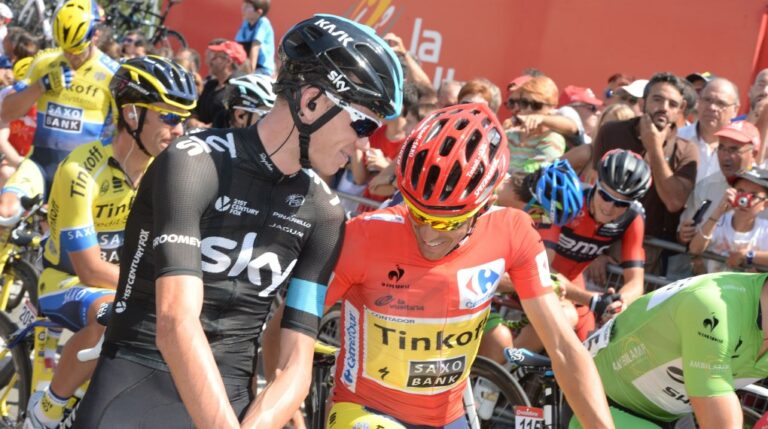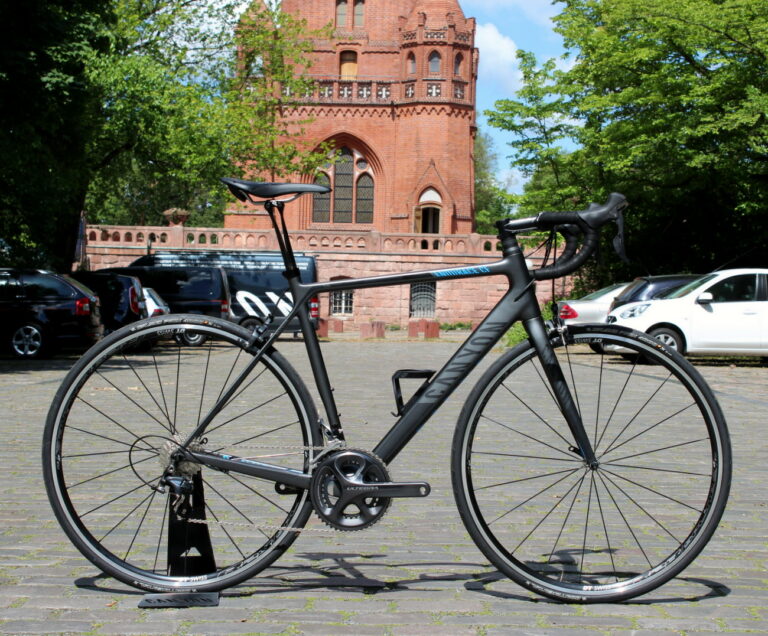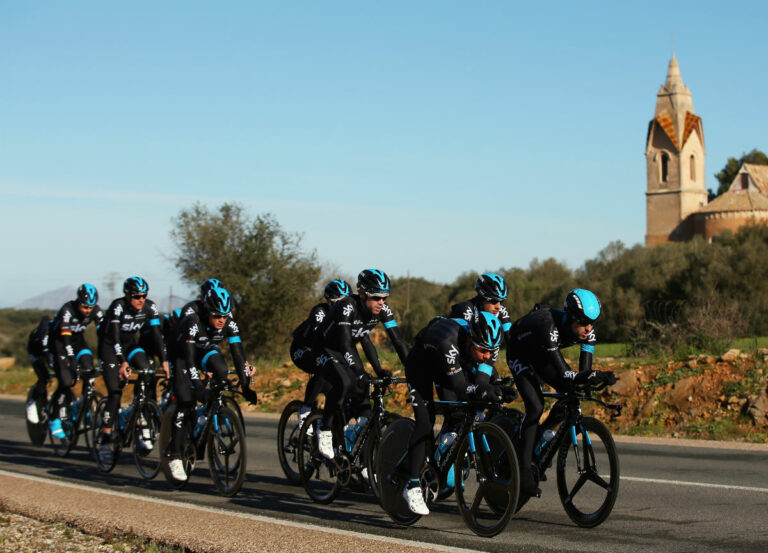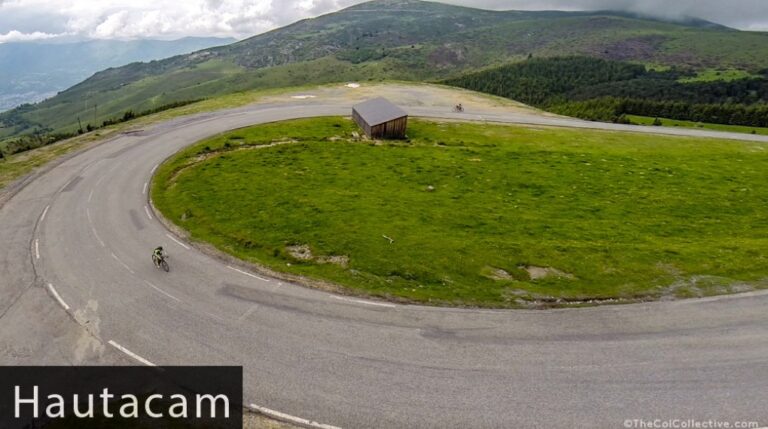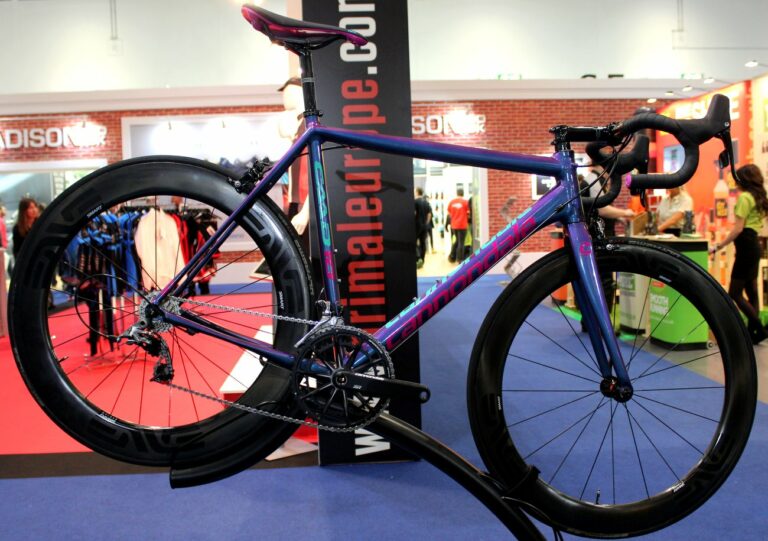Two grams of high-quality fish oil a day to boost muscle strength and agave nectar as an alternative to sugar – Team Sky leave no stone unturned in the pursuit of marginal gains and, in 2015, a Classics victory.
At the head of the Team Sky show is Sir Dave Brailsford, whose original masterplan saw Sir Bradley Wiggins and Chris Froome crowned winners of the Tour de France in 2012 and 2013, and the boss has promised more to come in his recent ’2020 vision’, with a major one-day win near the top of the agenda.
And under Brailsford’s watch is a team of experts extracting any possible gain from every aspect of performance – including head of nutrition, Nigel Mitchell. Be it shedding weight for the Tour de France mountains, staying in shape when injured and off the bike, or day-to-day nutritional advice, Mitchell is the go-to man for both Team Sky and British Cycling.
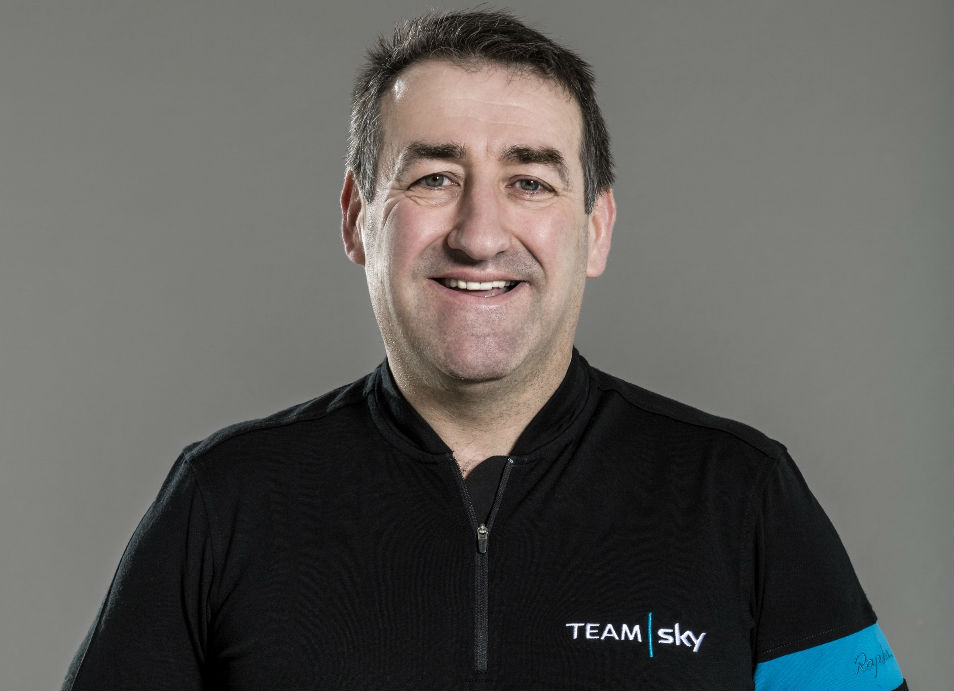
It was Mitchell who introduced fish oils to the team from his background in cancer care with the NHS and the Yorkshireman also educates British Cycling’s young Academy riders on diet and nutrition when they move to Manchester. Indeed, Mitchell has also shared his advice for beating the bulge this winter with RoadCyclingUK readers.
This year, Mitchell will work with Team Sky’s riders at the Classics. Wiggins’ Team Sky swansong will come in the spring, with the 34-year-old to make his last appearance in the blue and black jersey at Paris-Roubaix on April 12 looking to improve on a ninth place finish in 2014, while Geraint Thomas, who recorded top ten finishes in both the Tour of Flanders and the Hell of the North last year, and Ian Stannard will also start the cobbled Classics season with hopes of breaking the team’s duck in the Monuments.
The nutritional challenges of a one-day race differ from that of a three-week Grand Tour, and Mitchell will work closely with Team Sky’s Classics squad over the months ahead to fuel the likes of Wiggins, Thomas and Stannard in their bid for glory.
“With one-day races you aren’t so worried about weight gain but at the Grand Tours you’re really working on a very fine balance between fuelling the guys and working on their weight as well,” Mitchell told RoadCyclingUK.
“One of the key things at the Grand Tours is that you’re really maximising recovery, and in effect you need to do that at the Classics too – but at the Classics, the races tend to be quite damaging, particularly with the cobbles.
“One of the things on my programme this year will be being out in Belgium and working on the Classics. It involves working around the food service provision – working with the hotel, with the meals and the provision of food. You’ve also got to work with the riders individually as well, looking at their fuelling strategy, practicing that in training and then looking to implement that in the race.”
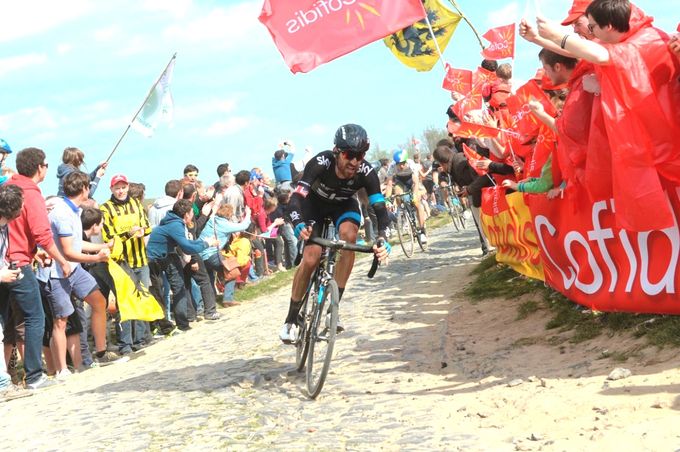
Come race-day, while the riders will largely consume the same on the bike in a one-day race, there are two exceptions – more gels and, crucially for riders tackling the frozen cobbled secteurs of Belgium and northern France, more warmth.
“The fuelling within the races is similar,” Mitchell said. “We’ll use the paninis, we’ll use rice cakes, and we’ll use bars and gels, though we tend to use more gels at the Classics, because often the riders will be in gloves to combat the cold and they are easier to open.
“Also, when it’s cold in the Classics, we’ll have a lot of sweet tea in the bottles rather than a sports drink. That’s one of the main differences.
“The nutrition strategy will also have to fit in with each rider’s different role within the team, and they all have different metabolisms, too. Some guys have got to be really careful what they eat from a weight point-of-view, and others can actually get on with effectively eating what they want. From a stomach perspective, different things also affect different people.”
We use more gels at the Classics, because often the riders will be in gloves to combat the cold and they are easier to open
Another hazard less prevalent in the Classics is the illness and stomach bugs which can rip through the peloton after long, hard days in the heat and through the Tour de France mountains. Richie Porte was one rider to be struck down with illness at last year’s race, but Mitchell explains that the team will always have a back-up plan in place.
“Through the Grand Tours, some people get a little more sensitive to things like wheat – it’s not that they have an intolerance, it’s just that the stomach takes a big pounding,” he said.
“So it’s really important to make sure we’ve got easily digested foods there. Some of the riders will have very simple diets, which will be based around chicken and rice. That’s a very individual thing so it’s important that the chef can provide a wide range of food.”
Behind every nutritional decision is sound reasoning, Mitchell says, and Team Sky will hope a thorough strategy can help the squad replicate their Grand Tour success at the Classics – and make the difference between a Paris-Roubaix top-ten and the top step of the podium after 257km of racing.
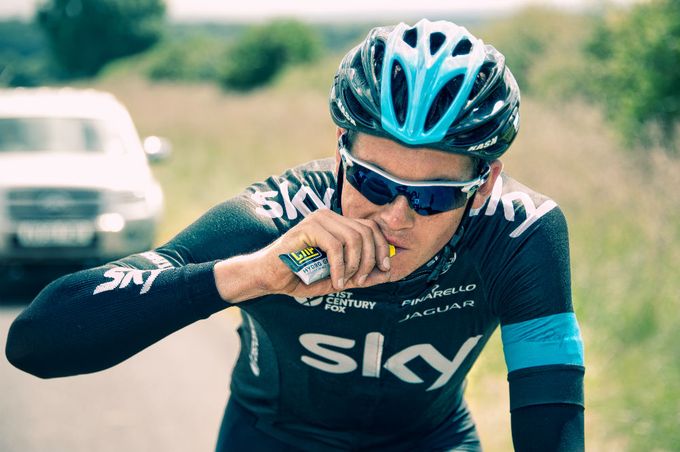
Mitchell’s role with both Team Sky and British Cycling means his work extends far beyond the WorldTour stage, and begins with fresh-faced youngsters who arrive in Manchester as residents of the much-vaunted Academy which produced the likes of Thomas, Stannard and Mark Cavendish.
And it is the success of those riders which makes Mitchell’s job far easier in getting future champions on side.
“It’s not difficult at all with that education because the riders come in and they believe in the system,” said Mitchell. “They believe the system works and they’ve got a will to learn because they know that by working within the system they will maximise their potential. They see the pedigree of talent that has come through British Cycling and they’re all very, very receptive.”
All told, Mitchell splits his role into three branches: strategy and environment, which involves working with sponsors and quality assurance, work at and around races, and, crucially, an ever-evolving involvement in research and development.
Young riders believe the system works and they’ve got a will to learn because they know that by working within the system they will maximise their potential
“Part of the role is always learning, developing and moving things forward all the time,” he said. “There’s always ongoing work. I link with various universities where we’re looking at different aspects of metabolism, recovery and adaptation. It’s not always ground-breaking but sometimes just looking at what we have and finding a better way of implementing it.
“One of the things which has become popular in the peloton is rice cakes. We brought those in a while ago to deal with the fuelling issues and we’re now looking at other ways to improve fuelling for riders. We’re always working on these things.”
Every decision is strategic, Mitchell says, and is backed up by sound reasoning, particularly when it comes to the likes of fish oils and agave nectar, and there is no room for experimentation. Wiggins is one rider who has taken Mitchell’s reasoning and advice on board, replacing all sugar in his house with agave nectar, which is sweeter than sugar and so helps reduce unnecessary intake.
“Whenever we are bringing something like that in, there has to be a real sound rationale for why we are doing it,” Mitchell insists. “It’s not just a case of trial and error. They are all strategic – the fish oils are around supporting health and immunity and recovery, while things like the agave nectar are about getting something sweet in with a lower energy density.

“Some riders have got a real sweet tooth and with things like sugar you’ve got to be really careful. The agave nectar is so sweet so they have less of it.”
If a shipment of high-fructose nectar is seen heading towards France and Belgium for the Classics season in March and April, then chances are there will be a Yorkshireman and some sweet-toothed Brits awaiting its arrival at the other end.
Will 2015 be the year that Team Sky break their Classics duck? It’s full steam ahead as far as Mitchell is concerned, with cause for optimism on the road and no stone left unturned by Brailsford, Mitchell and Team Sky’s backroom staff.

